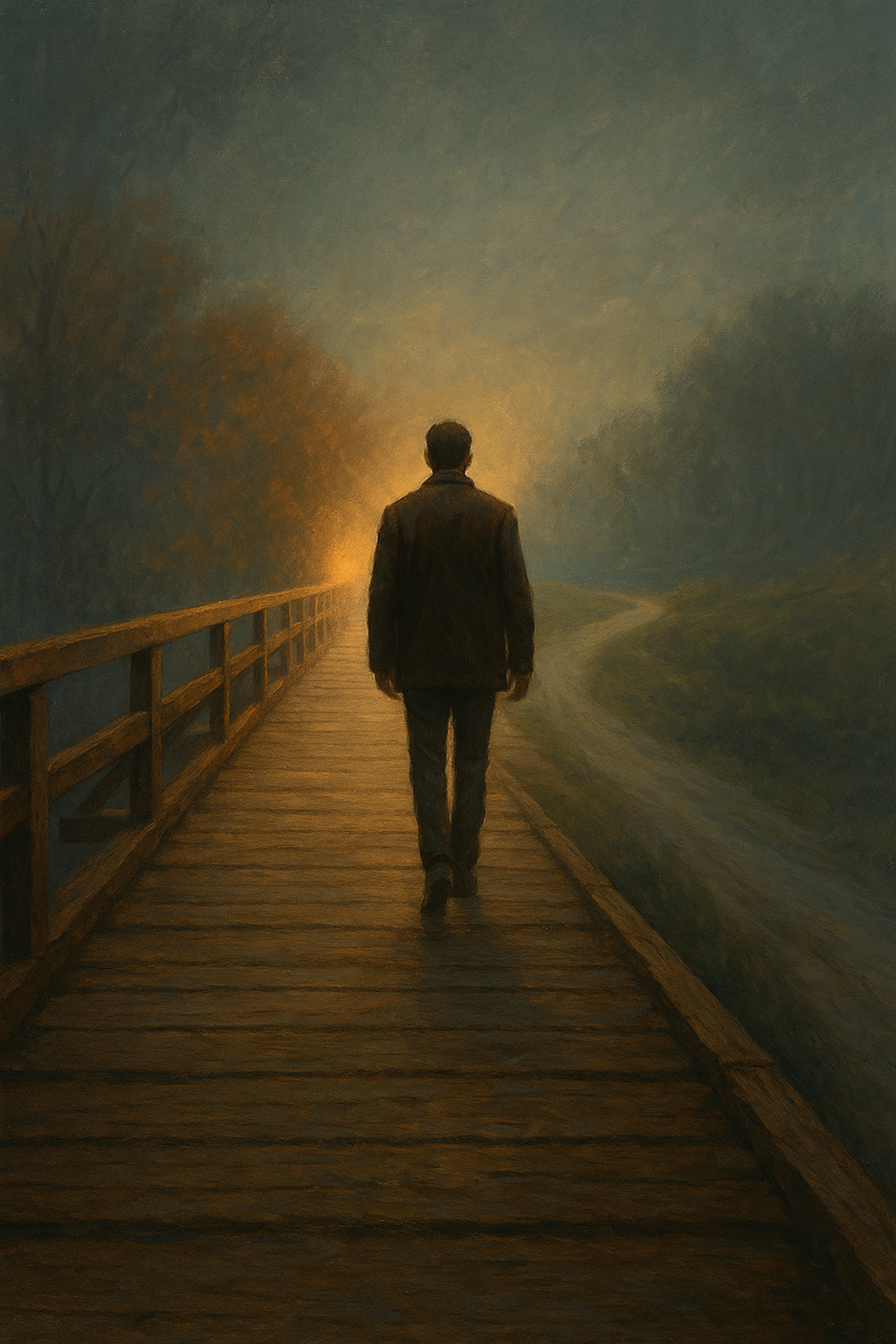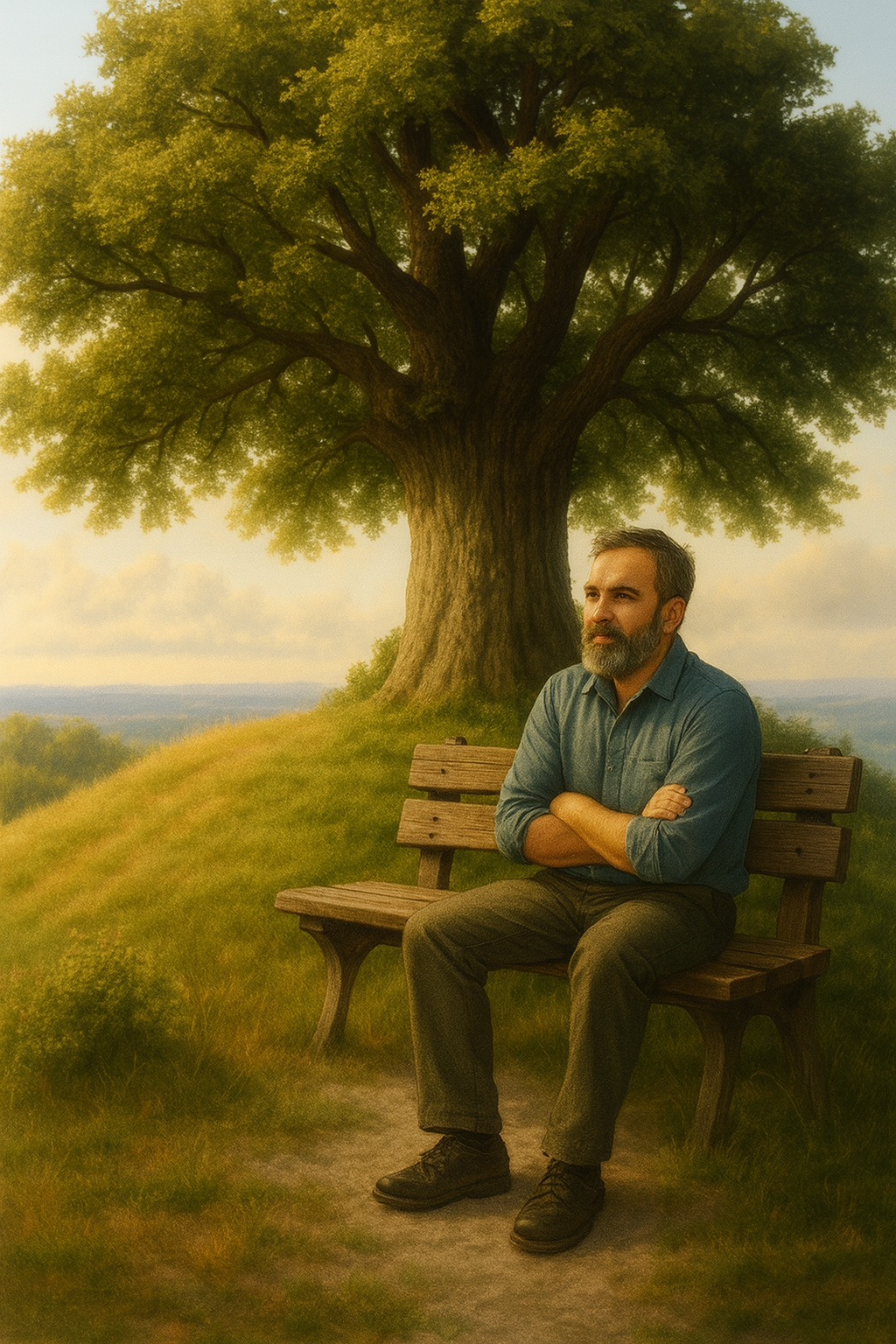
The bridge that was left behind.
The bridge that was left behind.
Once upon a time there was a long bridge over a river.
It was not new, not old — just familiar.
Many people crossed it, but there was a man who took care of it every day: he changed the planks, hammered nails, and if someone stumbled, he helped them up.
They didn't pay for it, he didn't ask for anything in return.
The bridge was like an old friend to him: he didn't count how much it cost, he just did his job.
One day a man came across it who was always loud, always urging, always wanting to prove that he was strong, and without him the bridge wouldn't stand.
"I'm holding this whole thing together!" he would say. "Nothing works without me!"
However, the keeper of the bridge knew that the bridge never stands because someone says it out loud, but because someone silently takes care of it.
One day the man crossed over again and forgot something he had always wanted to give him: a small purse, a payment, a thank you, anything that would show that he understood the other person's work.
But he didn't bring it.
And when I asked him about it, he said,
"I left it at home. Whatever. Next time."
The guard looked at him and said,
"You don't have to.
If you didn't bring it, you didn't want to bring it."
There was no anger in his voice.
Just simple, pure understanding.
The man took in the water.
He complained, shouted, and regurgitated old things, as if the sounds of the past could bring back what he had lost in the present.
But he just stood there in silence.
And then he realized something that sometimes takes thirty years to understand:
Not everyone can cross this bridge with you.
Some people only come as long as they need you.
As soon as they can no longer rely on you in the same way, they move away, or they become loud, because in the silence they have no more grip.
The guard of the bridge then said what he had felt for a long time, but had not yet expressed:
- If you have not seen who I am in all these years, then there is nothing more for me to say.
The bridge will carry me on — but I do not have to accompany you anymore.
The man said something more as he walked away, but he no longer understood any of it.
The wind carried his voice away, as if it had never been important.
And the guard walked across the bridge, looked at the planks, and decided not to close it behind him.
The bridge should remain open — but now he was going in a different direction.
And as he walked away, a strange calm descended on him.
He had not lost anything.
Rather, he had regained something that he had long considered to be someone else: himself.
